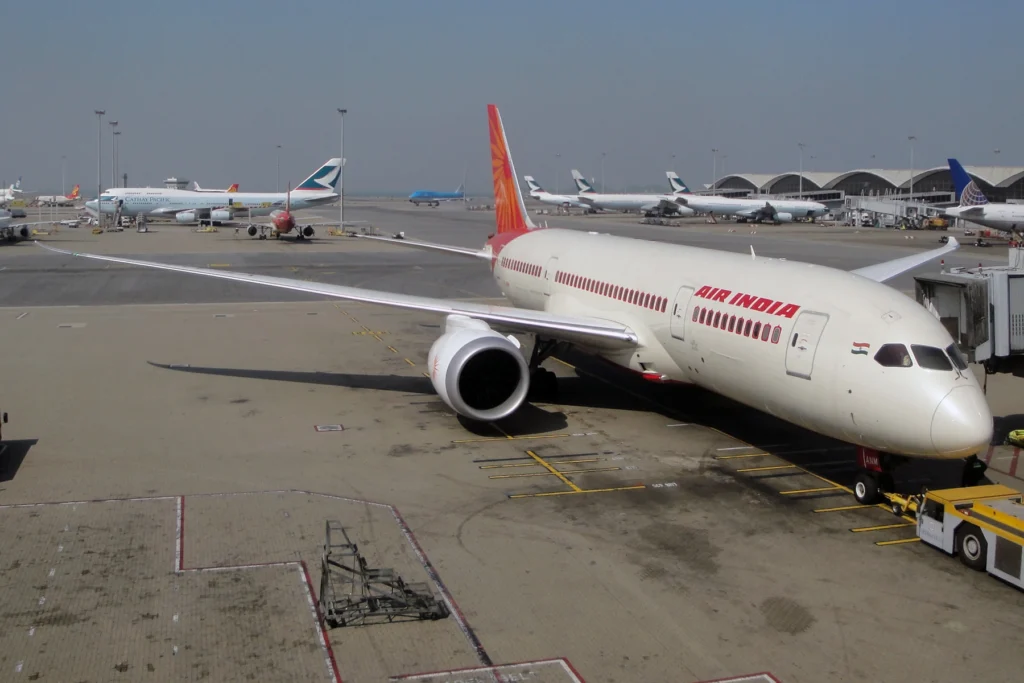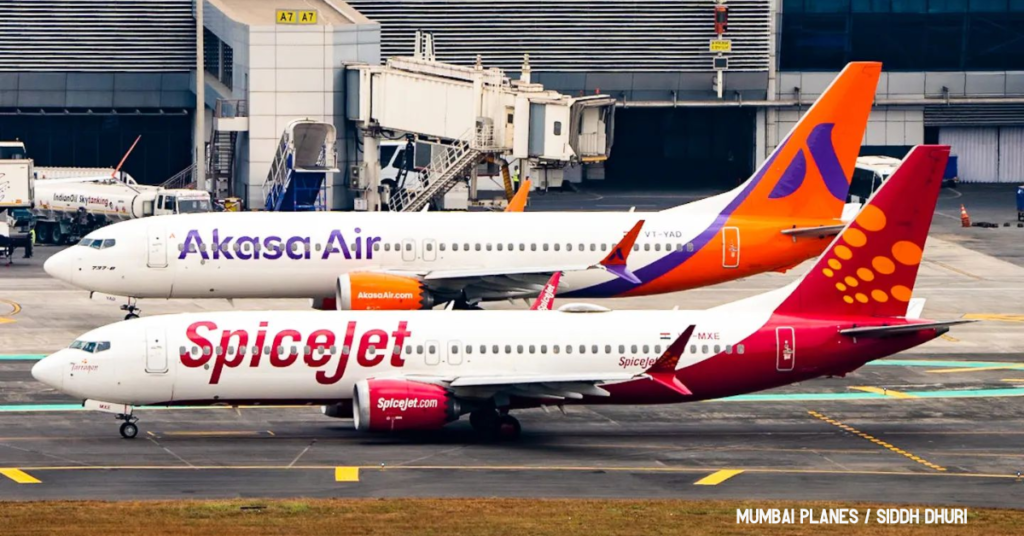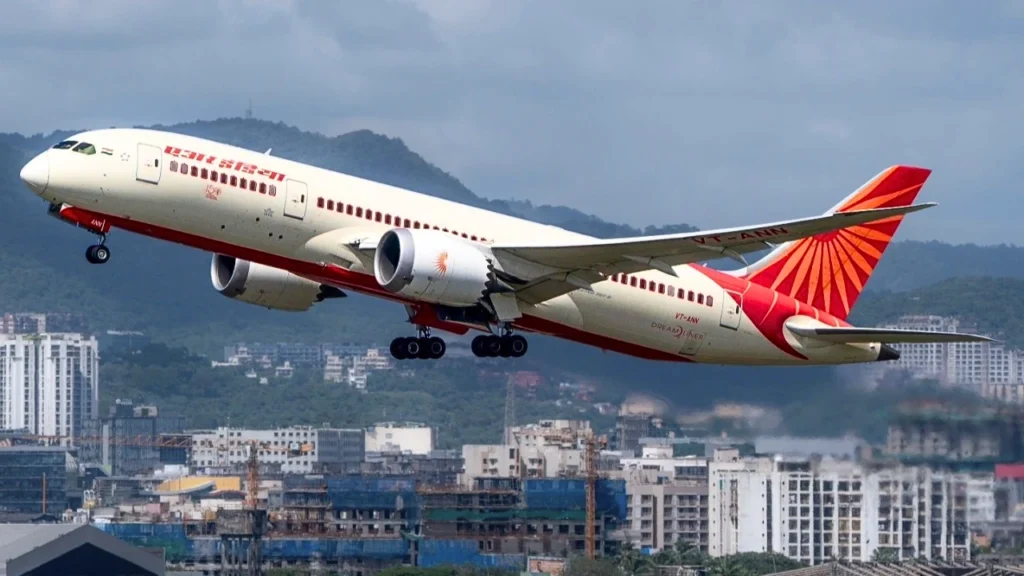
DELHI— Tata Group-owned Air India (AI) has completed precautionary inspections on the fuel control switches of its Boeing 787-8 Dreamliner fleet, with no issues detected, according to an airline official. The inspections followed a mandate by the Directorate General of Civil Aviation (DGCA) after concerns emerged post the Air India flight AI171 crash near Ahmedabad (AMD).
All 787-8 aircraft in Air India’s fleet have also undergone Throttle Control Module (TCM) replacements per Boeing’s maintenance guidelines, the airline confirmed. This ensures compliance with both manufacturer recommendations and regulatory advisories.
 Photo: By Kambui – Air India Boeing 787-8 Dreamliner VT-ANM, CC BY 2.0, https://commons.wikimedia.org/w/index.php?curid=58290529
Photo: By Kambui – Air India Boeing 787-8 Dreamliner VT-ANM, CC BY 2.0, https://commons.wikimedia.org/w/index.php?curid=58290529Air India Finds No Issue with 787s
Over the past weekend, Air India’s engineering team conducted a full assessment of the locking mechanism on the Fuel Control Switch (FCS) for every Boeing 787-8 aircraft in its fleet. The airline stated that all checks were completed without identifying any faults.
Additionally, Air India highlighted that it had already replaced fuel switches during previous TCM replacements in 2019 and 2023. The TCM and FCS are part of the integrated quadrant unit on the 787, meaning that a module replacement typically addresses both components.
This statement follows a directive from the DGCA, India’s civil aviation regulator, which required all Indian airlines to inspect fuel switch locks on Boeing 787 and 737 aircraft by July 21, 2025.
The order was triggered by the Aircraft Accident Investigation Bureau’s (AAIB) preliminary report on the fatal AI171 crash on June 12, which involved a Boeing 787-8 en route from Ahmedabad (AMD) to London Gatwick (LGW).
 Photo: Photo: Siddh Dhuri | MumbaiPlanes
Photo: Photo: Siddh Dhuri | MumbaiPlanesRegulatory and Industry Response
The DGCA’s directive applies to multiple Indian carriers operating Boeing aircraft, including Air India Express (IX), Akasa Air (QP), and SpiceJet (SG).
International airlines such as Etihad Airways (EY) and Singapore Airlines (SQ) have also begun precautionary inspections on their Boeing fleets.
The U.S. Federal Aviation Administration (FAA) has maintained that the fuel switch locks remain safe and has not escalated its previous 2018 advisory regarding potential disengagement of the fuel control switch lock on Boeing 737s.
The advisory did not apply mandatorily to the 787, and no reported incidents have emerged for the type so far.
An Air India engineer further clarified that despite the FAA’s prior advisory, the airline did not perform specific checks because the directive was non-mandatory.
However, the AAIB’s findings post the Ahmedabad crash prompted a reassessment across the industry, although the FAA continues to assert that the situation does not present an immediate safety risk.
 Photo: Mumbai Planes | Siddh Dhuri
Photo: Mumbai Planes | Siddh DhuriAI171 Crash: Focus on Fuel Switch Operations
The AAIB’s preliminary report into the AI171 crash revealed a critical sequence involving the fuel control switches. Flight data indicated that just after takeoff at 13:08 IST, both engine fuel control switches were manually turned off within a one-second interval—an abnormal and unexplained action—before being reactivated.
At 13:09:05 IST, a distress call was made by the crew, but no further communications followed before the aircraft crashed into a nearby medical college hostel, killing all 270 onboard.
Investigators recovered and quarantined both engines in a secured hangar for detailed examination. Fuel samples from the aircraft and its refueling source passed DGCA laboratory testing with satisfactory results, ruling out fuel contamination as a factor.
While the AAIB report refrained from issuing immediate recommendations against Boeing or the engine manufacturers, it brought the fuel control switch and its associated mechanisms into regulatory focus globally.
Stay tuned with us. Further, follow us on social media for the latest updates.
Join us on Telegram Group for the Latest Aviation Updates. Subsequently, follow us on Google News
Air India Replaced 787 Throttle Module Twice Before Crash
The post Air India Found No Issues with Boeing 787s appeared first on Aviation A2Z.

 4 miesięcy temu
4 miesięcy temu




